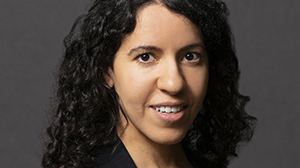China uses anti-access/area denial (A2/AD) technology to avoid conflicts on its coast and mainland, yet the technology has important ramifications for the United States.
On Thursday, September 15, the Charles Koch Institute hosted Eugene Gholz, associate professor of public affairs at The University of Texas at Austin, for a discussion of China’s anti-access/area denial (A2/AD) technology at the Army Navy Club in Washington, DC.
According to international security scholars Stephen Biddle and Ivan Oelrich, China’s A2/AD uses “a series of interrelated missile, sensor, guidance, and other technologies designed to deny freedom of movement” to keep any potential adversaries, including the United States, from intervening in a conflict off of China’s coast or from attacking the Chinese mainland.
While the term A2/AD usually refers to Chinese military plans, Gholz argued that other countries in the Asia-Pacific region could employ A2/AD to help protect against the possibility of a Chinese amphibious assault on their territory. This would enable those countries to defend themselves rather than relying on the United States to save them.
As a result, countries like Taiwan, Japan, and the Philippines could create “overlapping contested zones” to keep China at bay, a concept Gholz labelled “No Man’s Sea.” In other words, countries in the Asia-Pacific region could defend their own backyard rather than letting the United States defend it for them.
Using Taiwan to illustrate A2/AD’s application, Gholz explained that technology has made it easier and cheaper for countries to employ the intelligence, surveillance, and reconnaissance capabilities necessary to conduct A2/AD operations. Although Taiwan has some domestic capability to build anti-ship and surface-to-air missiles (e.g., the Hsiung Feng III and Tien Kung I), it could do more to develop these capabilities.
As the conversation opened up to audience questions, attendees were eager to discuss and debate Gholz’s view that A2/AD adoption could minimize the United States’ role in the Asia-Pacific region. In particular, they posed queries about the possibility of a Chinese blockade to coerce Taiwan.
Some audience members were concerned that the A2/AD strategy Gholz outlined would not be enough to protect Taiwan from being cut off from supplies. Yet Gholz countered that Taiwan’s most pressing concern is the possibility of a Chinese amphibious attack. Thus, Taiwanese A2/AD would be the best way to deter that particular type of operation.
Furthermore, according to Gholz, it would be a strategic win if policymakers did not need to be concerned about an amphibious assault and could instead focus on how to maintain Taiwanese freedom of movement and trade. As Gholz pointed out, breaking a Chinese blockade on Taiwan would be a hard problem to solve, but not as difficult as it would be for U.S. forces to attempt to defeat Chinese A2/AD to rescue Taiwan from an amphibious assault.
The discussion concluded with Gholz’s take on the implications of A2/AD for U.S. policy. While Gholz advocated for a strategy based on restraint, he pointed out that whether the United States pursues a restrained grand strategy or a deeply engaged one, it is preferable to have capable allies. If U.S. allies in East Asia were to adopt an A2/AD strategy, they would be much more capable of protecting themselves than they are now.
Gholz’s ideas sparked a great deal of discussion about the role of the United States in a conflict involving China and U.S. allies in Asia. Although the debate is far from settled, it is imperative that the U.S. foreign policy establishment stretch the boundaries of discussion and listen to new ideas in order to arrive at the best strategies possible.
The Charles Koch Institute hopes to contribute to this debate and to expand the national conversation about foreign policy by engaging with top scholars and hosting special events, while the Charles Koch Foundation continues to support research that examines the connection between foreign policy, freedom, and well-being.


